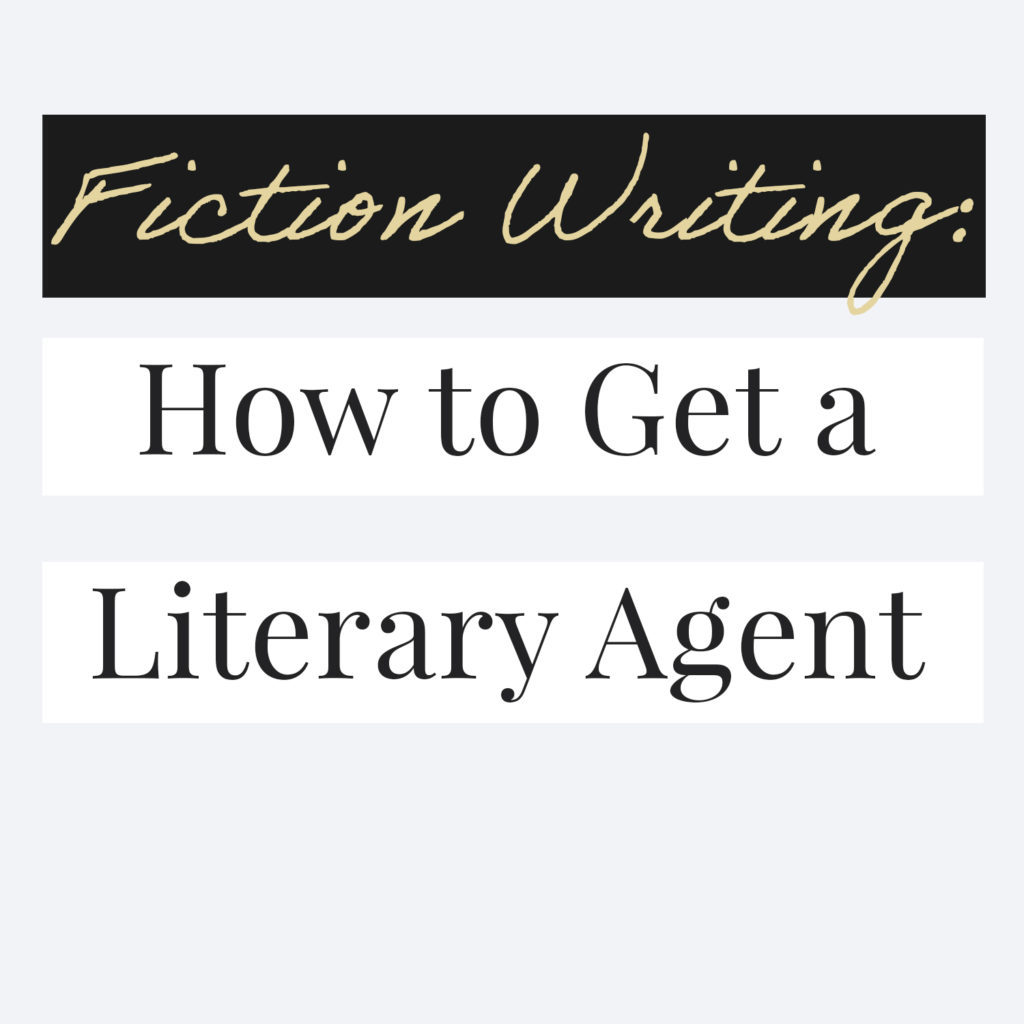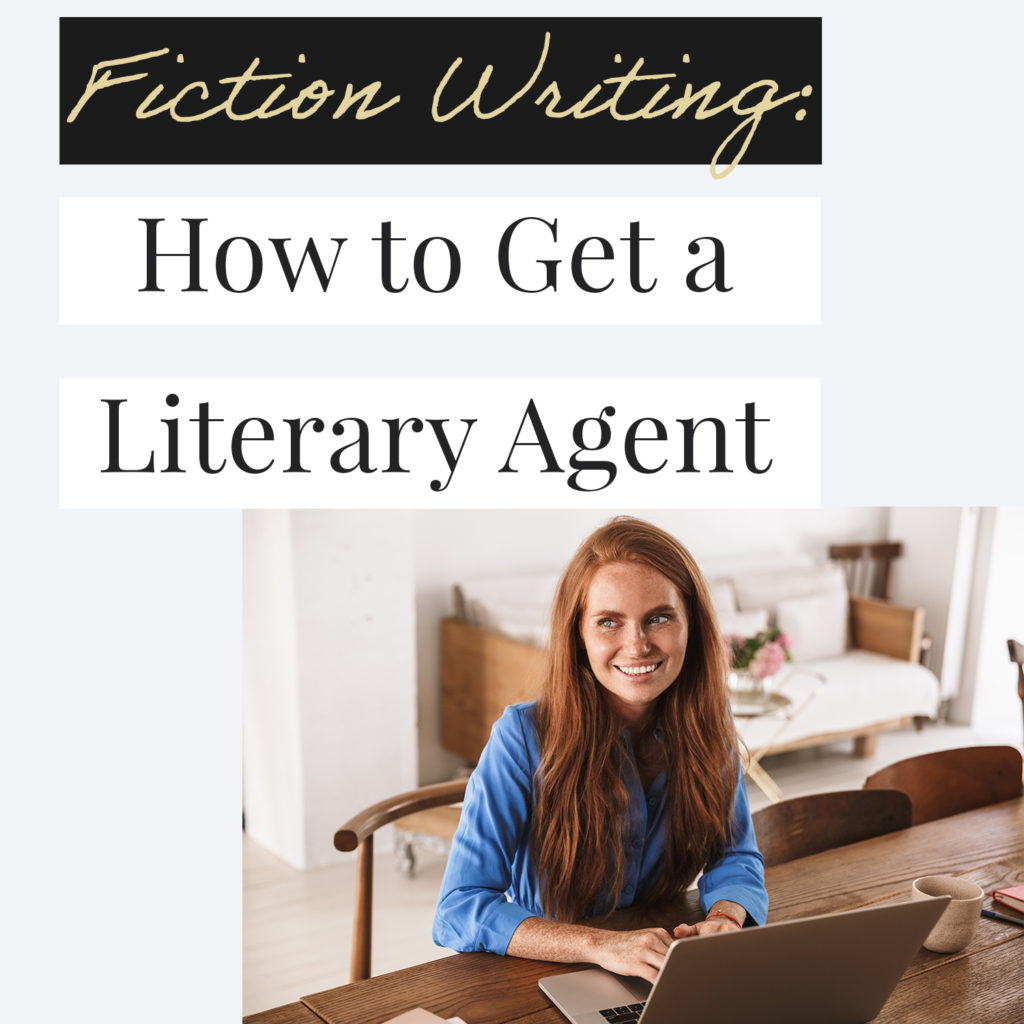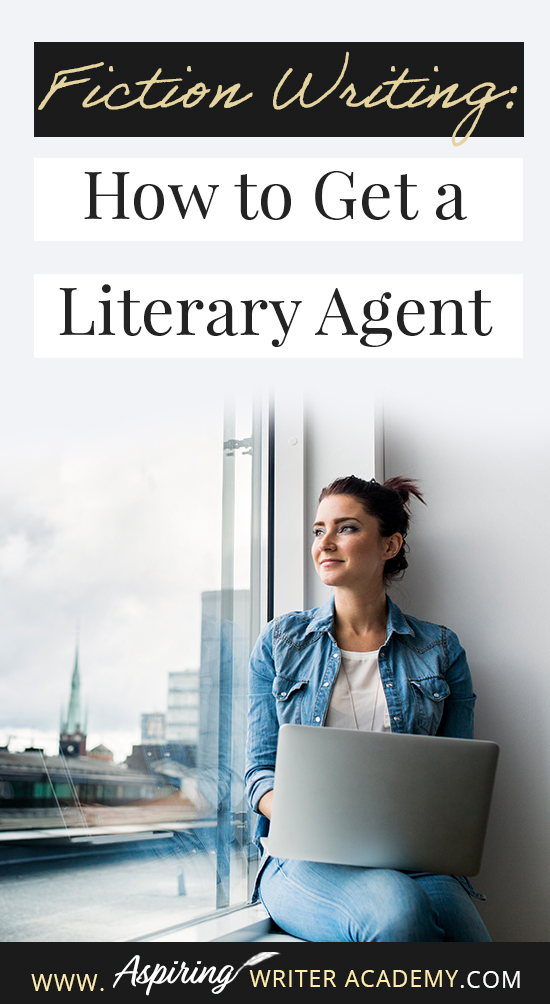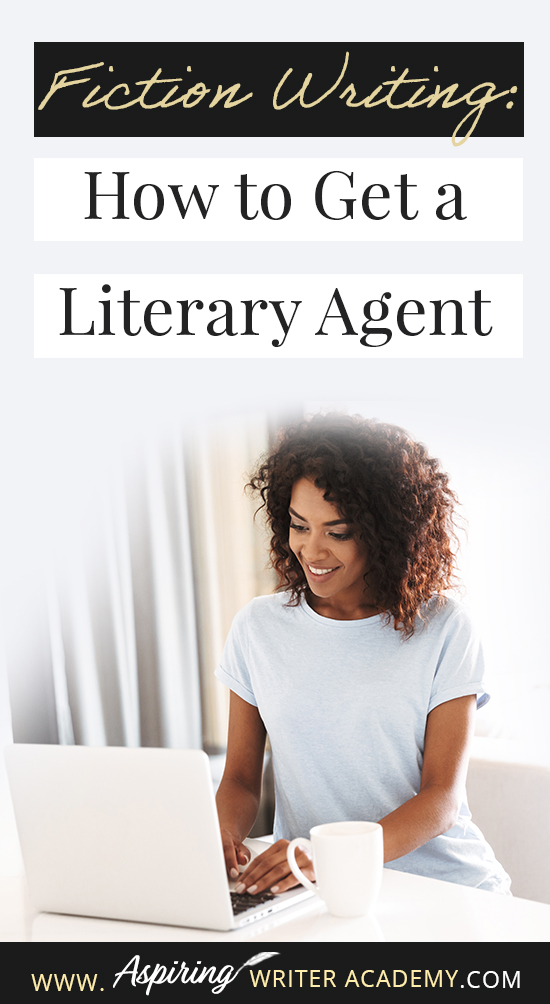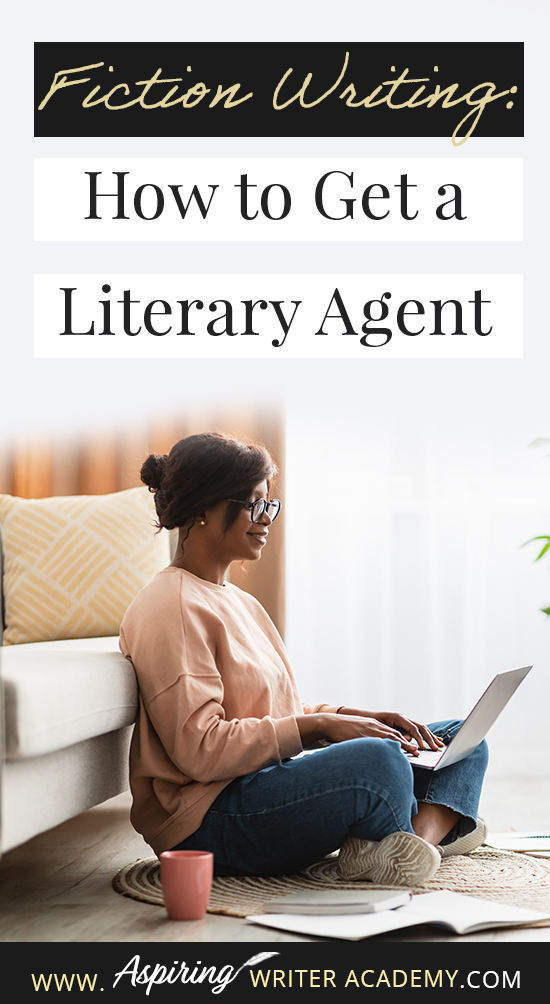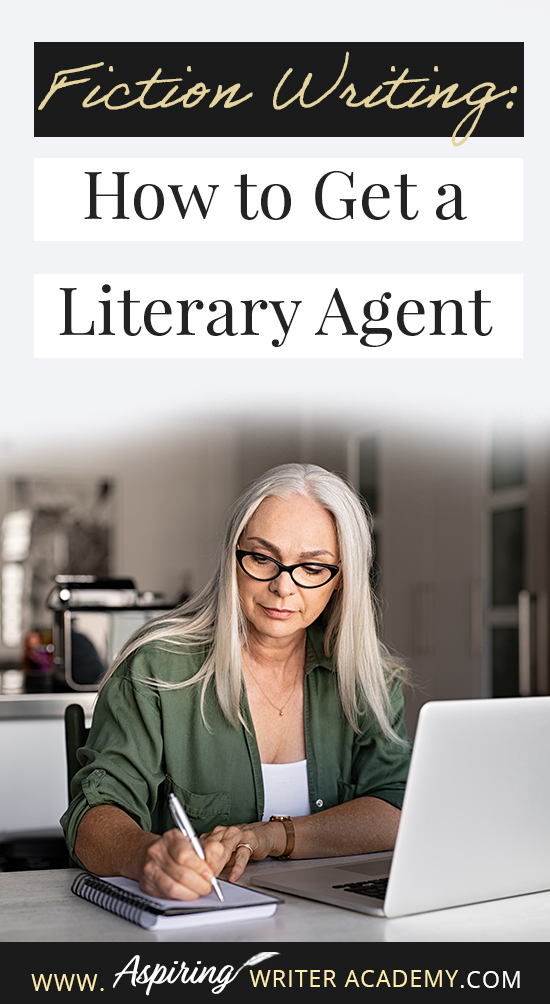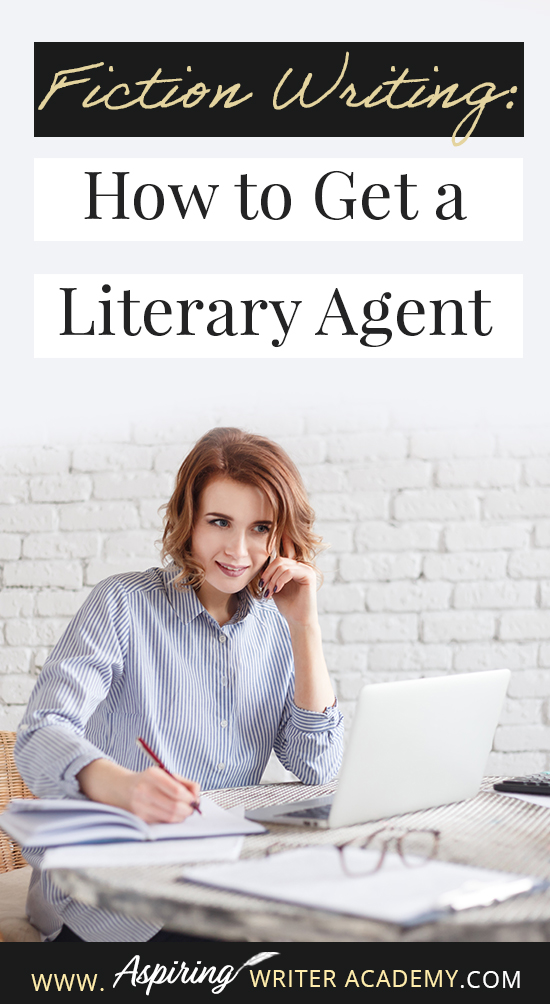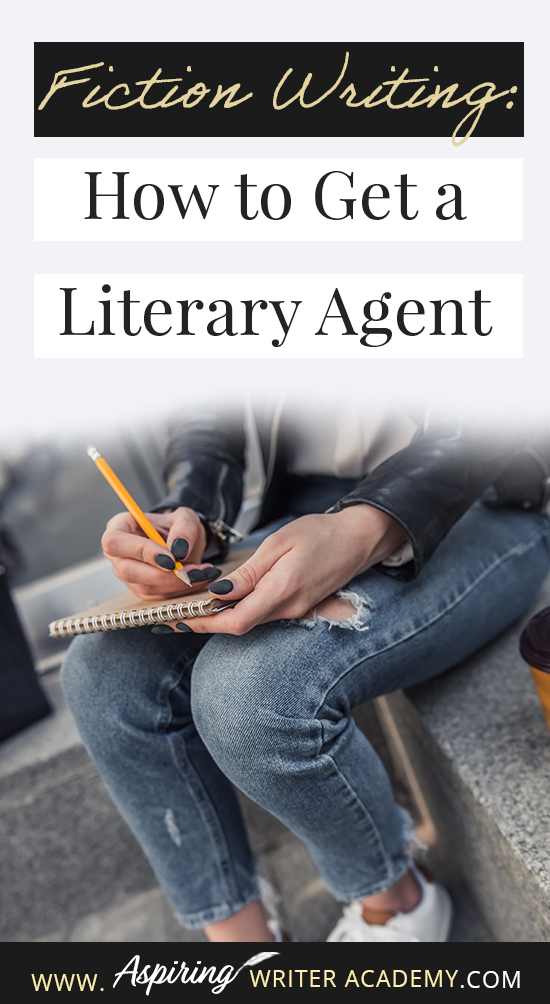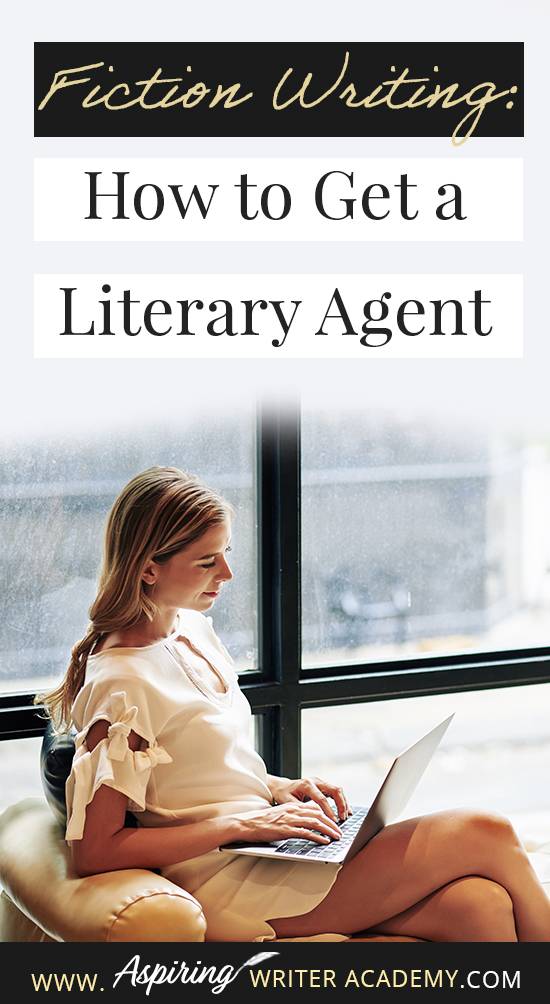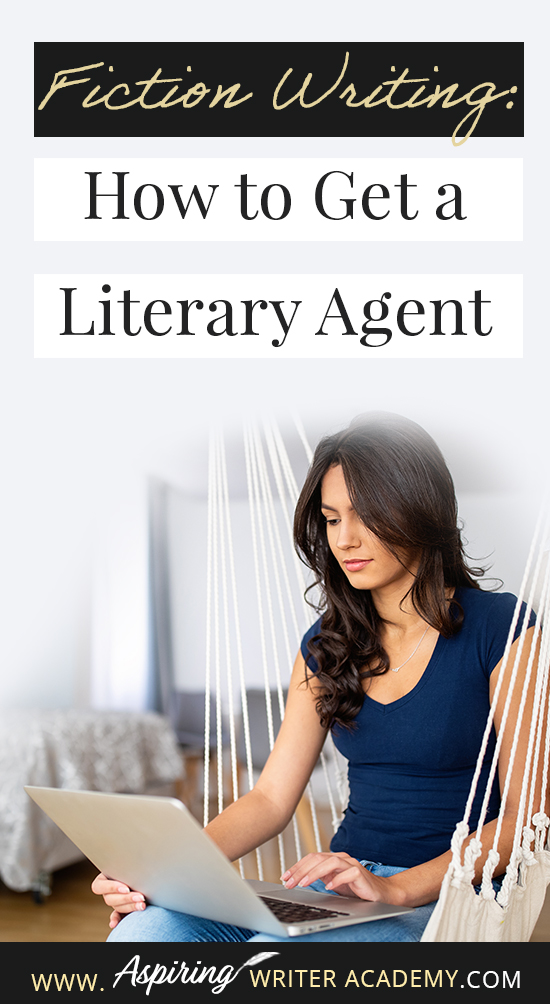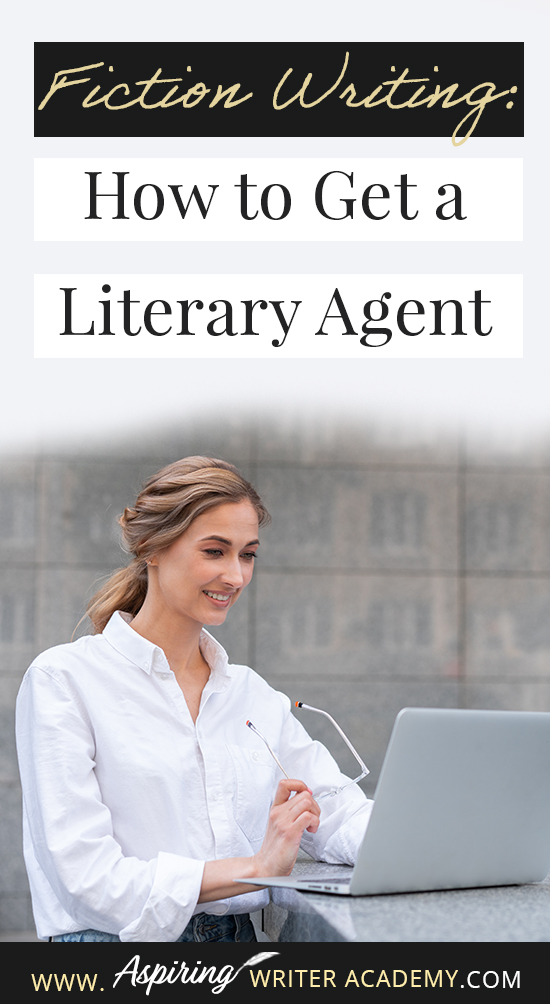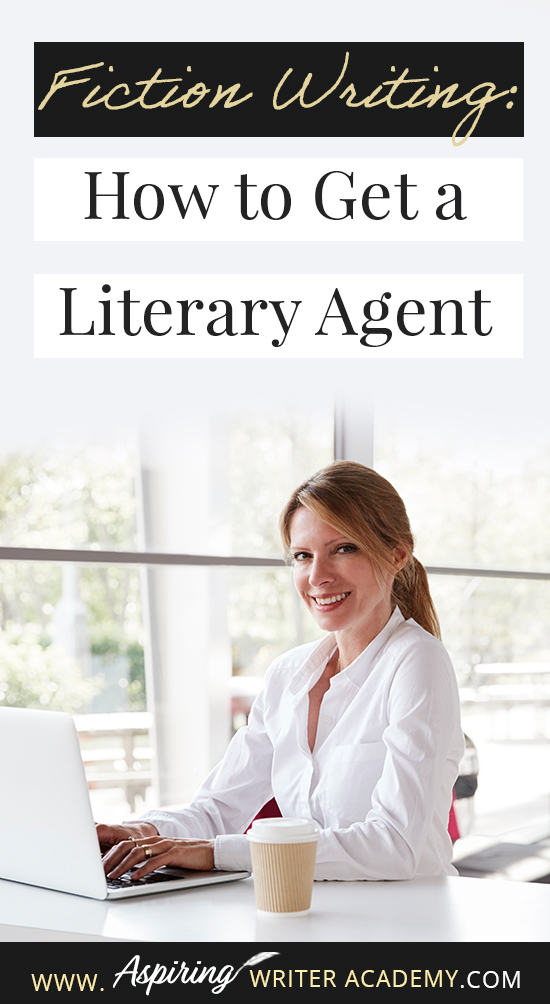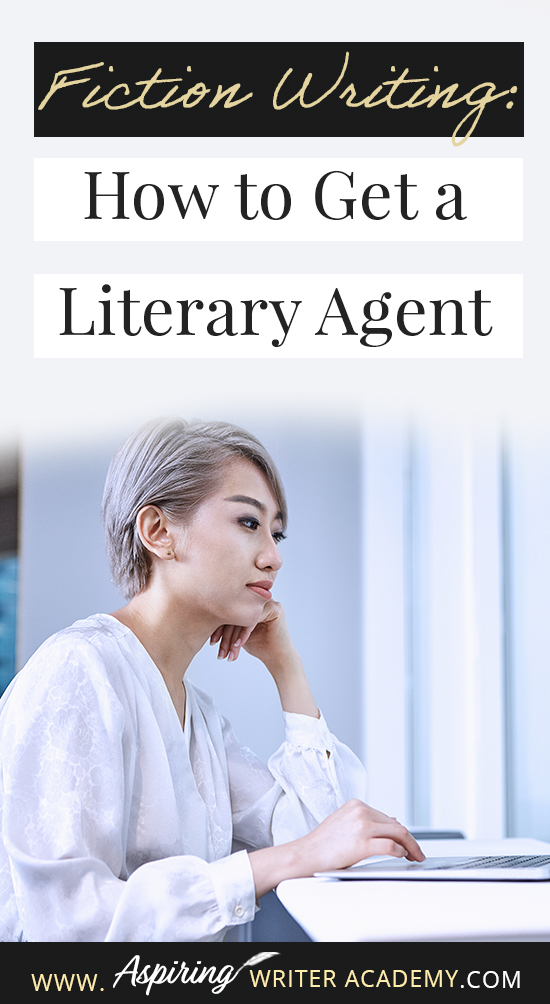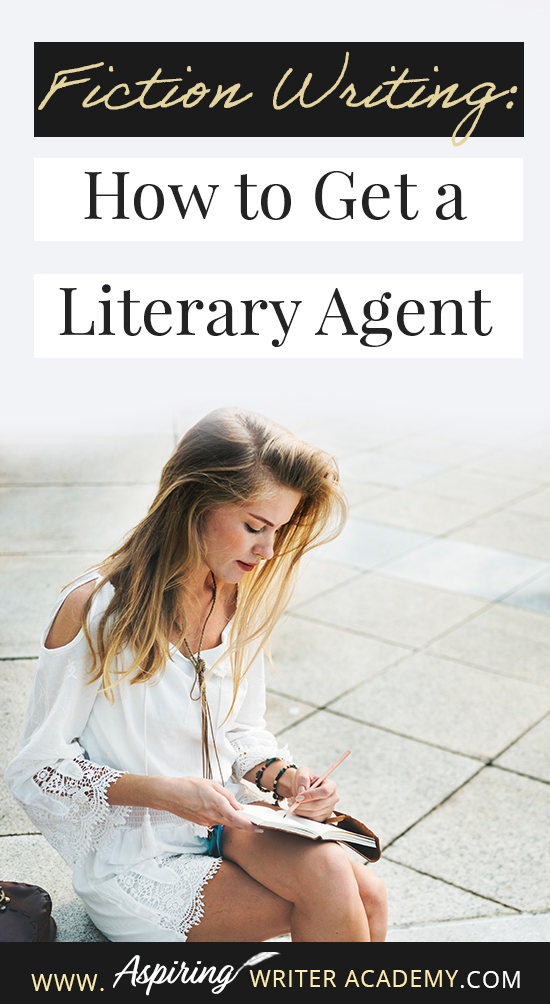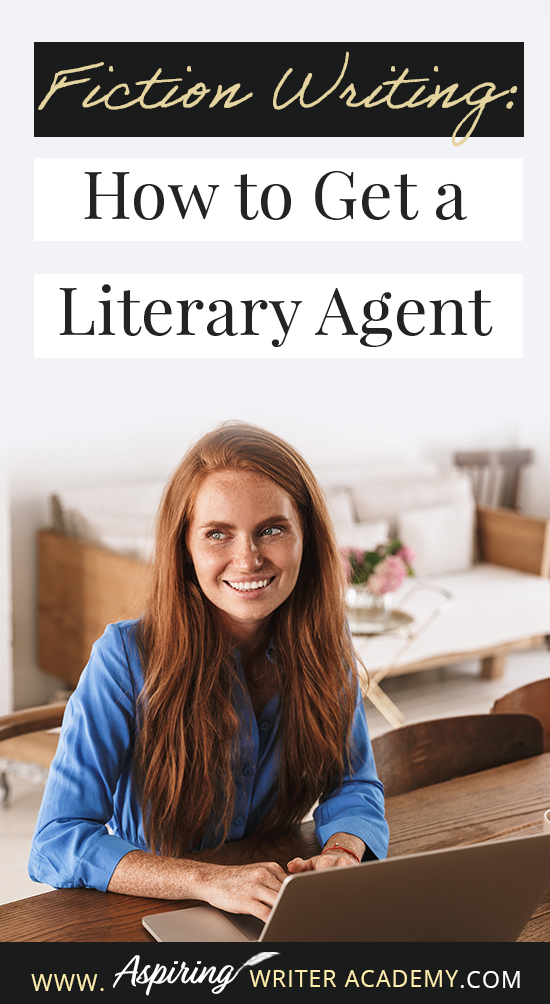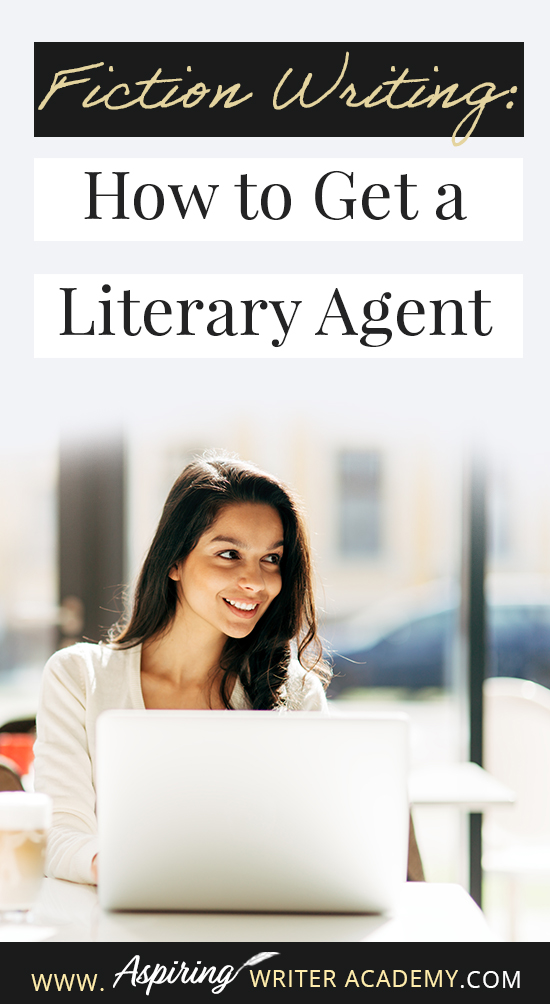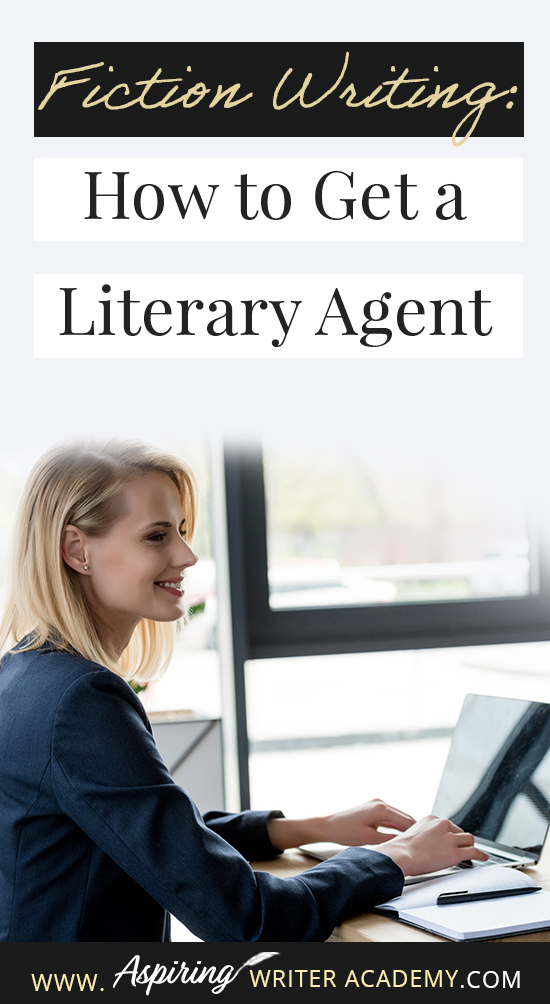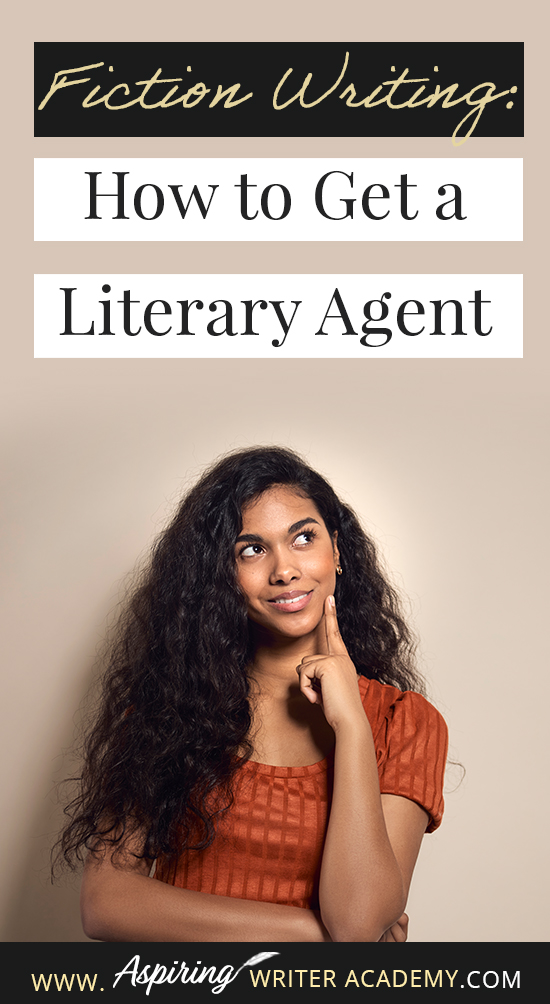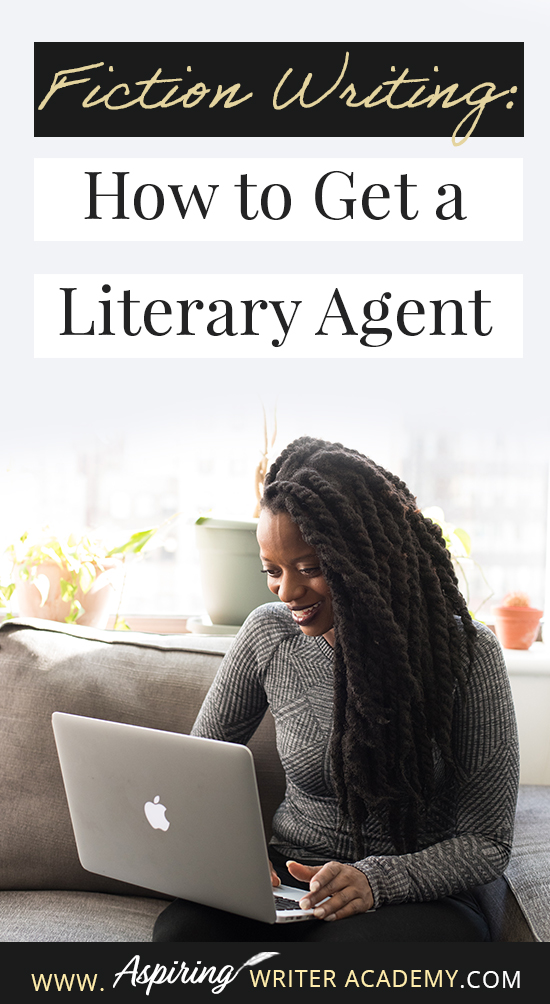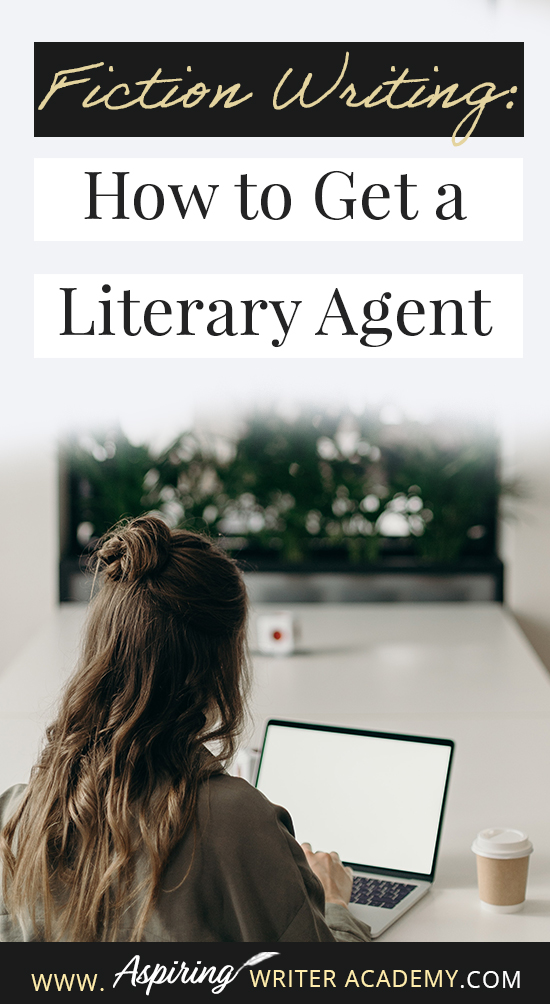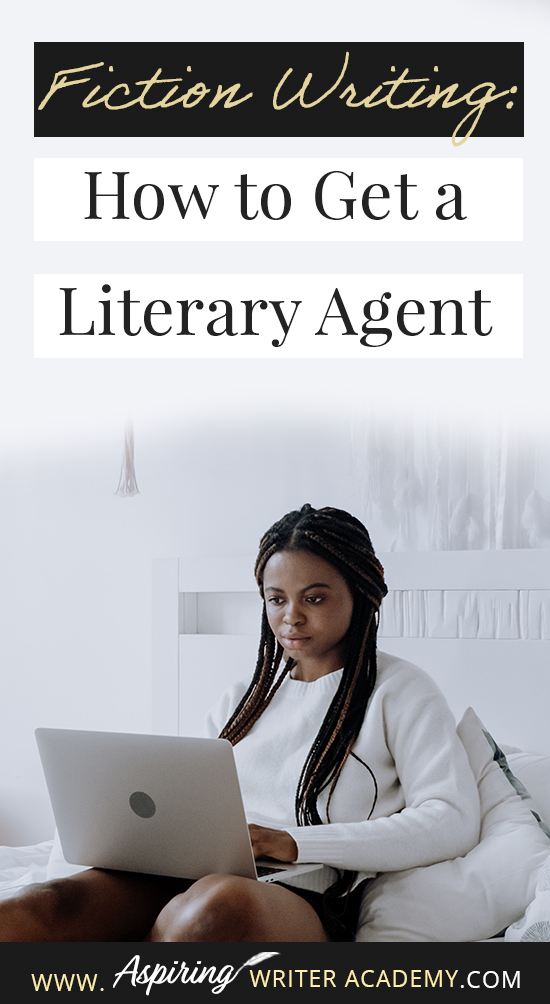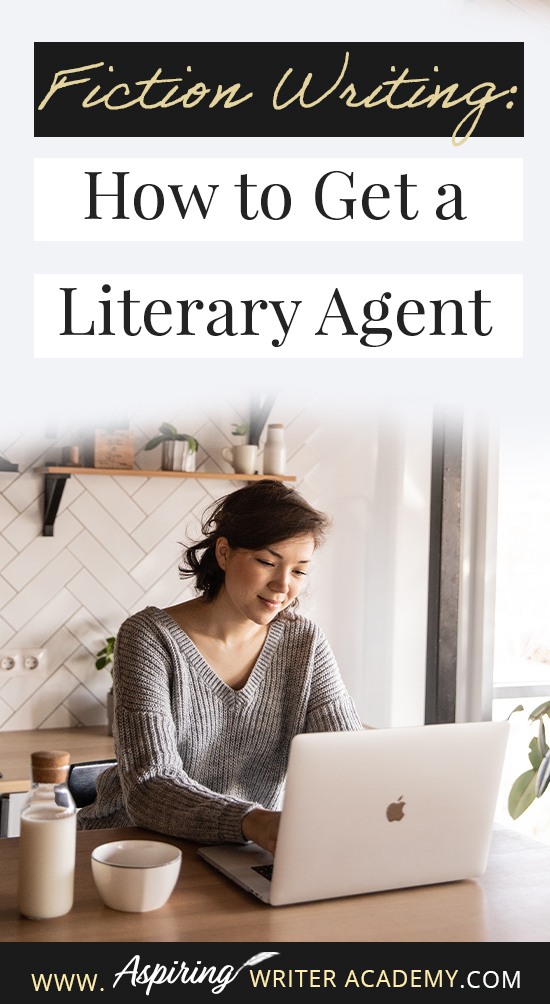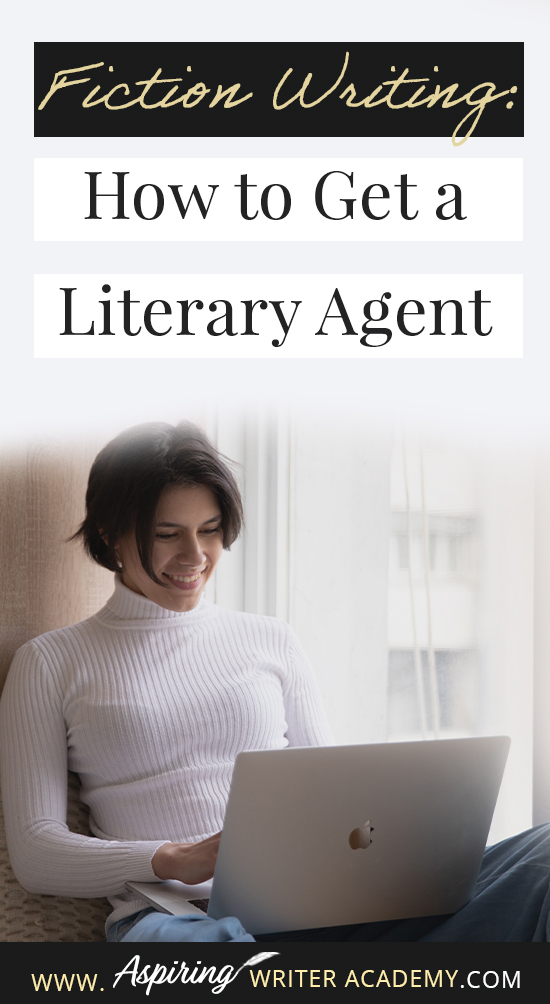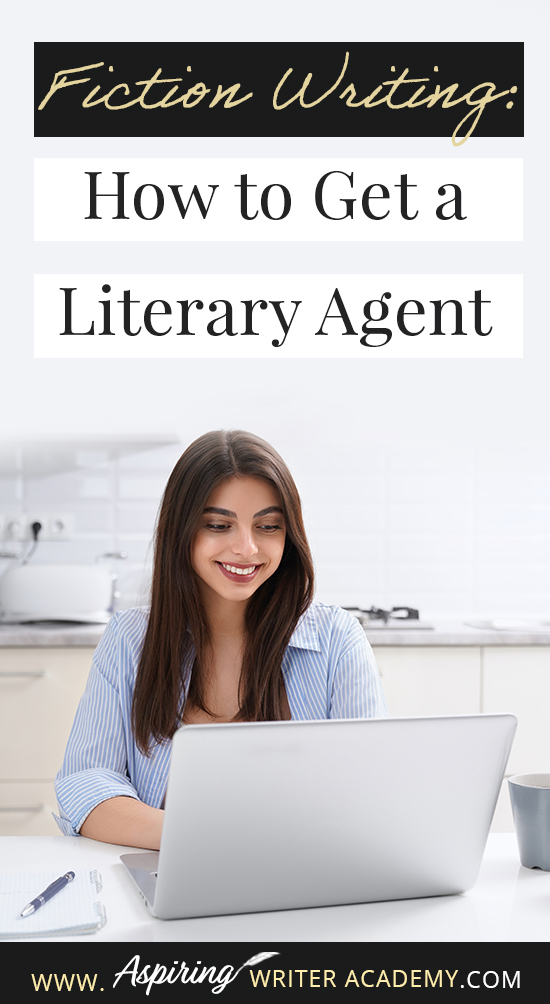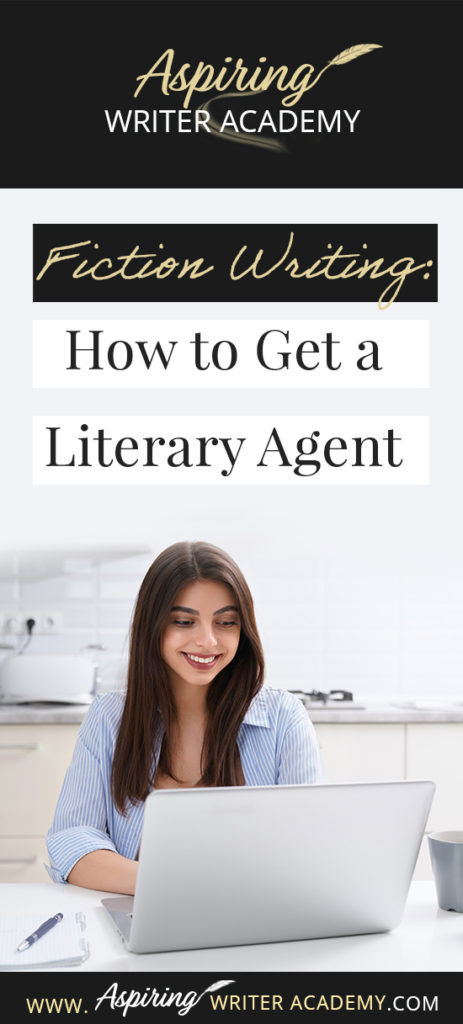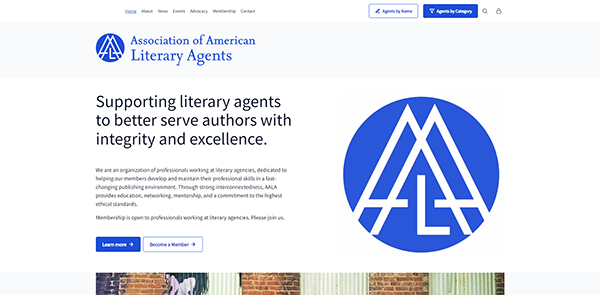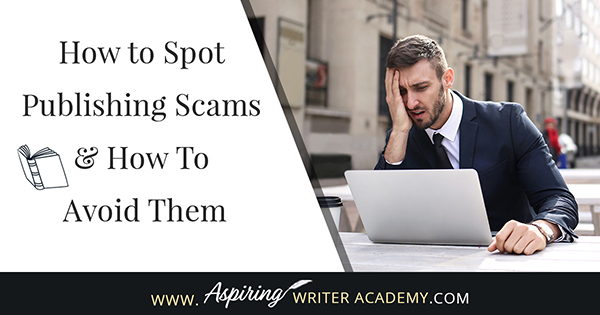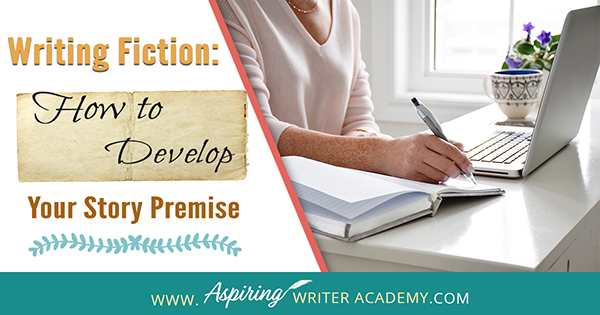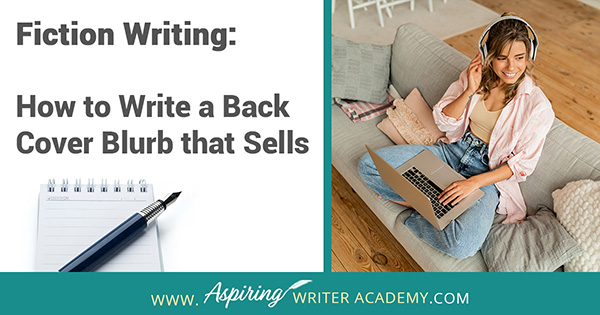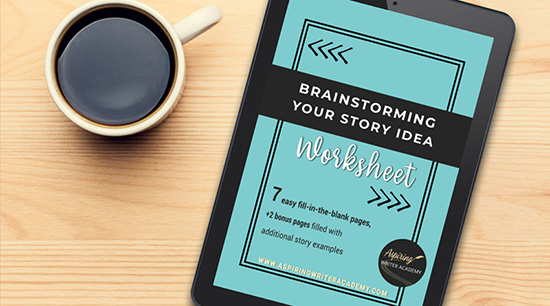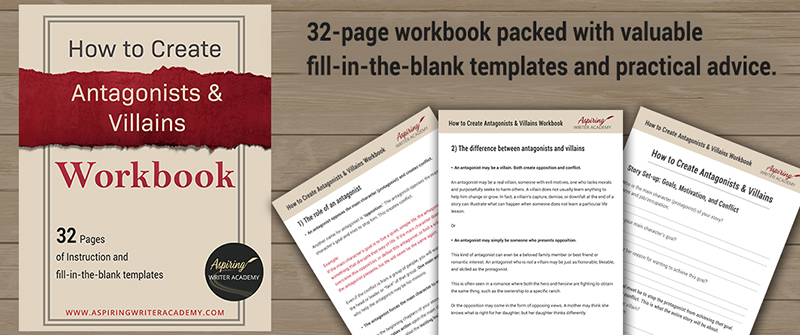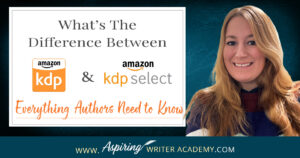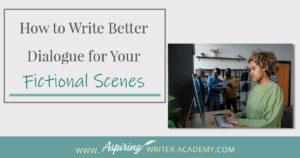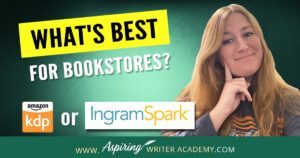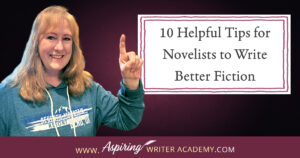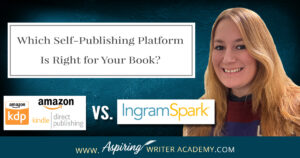Fiction Writing: How to Get a Literary Agent

If you have finished your first novel, you may be thinking about publication and how to acquire a literary agent. But are you truly ready to pitch to an agent? Do you have a website and a thriving social media platform? Have you researched which agents accept manuscripts in your genre? Do you know how to put together a book proposal?
In our post, Fiction Writing: How to Get a Literary Agent, we discuss each step you should take when seeking representation for your finished novel.
Follow along as we discuss:
1) When to acquire an agent
2) Agent & editor expectations
3) The elements of a book proposal
1) When should you acquire an agent?
First, learn to write a great book.
Not just a finished book, but a great book. One that clearly shows the writing skills you have learned over the years while pursuing your craft. After all, your book will be competing against the best of the best in the marketplace. And do not write just one, but at least two, or three. Each new book will grow your skills as a writer.
One question an agent will ask is – “What else have you got?”
This is because the editor at the publishing house they send your manuscript to will also ask – “What else does this author have?”
Publishing is a business, and agents and editors want to invest in an author for the long term. They do not want just one book. Most publishers do not make money on an author until they’ve written several books because it usually takes that long for the author to build a large, dedicated readership.
If you do happen to acquire an agent and receive a book contract from a publishing house for your first book, you will really wish you had a few other books ready to go so you are not suddenly struggling to create something new under tight deadlines for your next books. Too many authors struggle with the stress of ‘being on the hamster wheel’ and having no social life while trying to make future book deadlines. Not fun.
If you do not plan to pursue a writing career, with multiple books in your future, then you do not need an agent. Instead, you should consider self-publishing.
If you do plan to pursue a writing career, it is also possible that if you meet an editor of a publishing house at a conference who is interested in your book, you may not need an agent.
Personally, I had five contracts with a top publisher before I signed with an agent. Later, I did choose to acquire an agent to help navigate new contracts and open doors to extra opportunities, such as movie rights, that I did not have access to on my own. And some traditional publishers will only accept book proposals from authors who have an agent.
However, it doesn’t do an author any good to acquire an agent before the manuscript is ready to be sent out into the marketplace. And just because an agent agrees to sign with you does not mean that your book is ready.
Unfortunately, some aspiring writers are over-eager to see their name in print. They just want to know how to get an agent, get published, and make money. They think they already know how to write and are disappointed when their agent cannot find a publisher to offer a contract. Some authors wait for years with no success. They may even think it is the agent’s fault and try to find a new one.
As an author, it is up to YOU to take successful measures to launch your career by first learning all you can about writing and publishing.
- Read how-to books on the craft of writing
- Join various writing organizations
- Find a mentor - who has already successfully published
- Interact with online author & reader groups
- Pay for online classes and courses on writing
- Attend writer’s conferences and connect with other writers
- Build your author website & email newsletter following
- Follow literary agents and editors on social media
- Research submission guidelines for publishing houses
- Read new releases from the various publishing houses
- Never stop learning. Continuing education is a must.
A few more tips:
- Hire a professional freelance editor to critique your work to give you honest feedback on your writing and point out areas that need revision.
- Enter writing contests and if you start getting good feedback on your work or become a finalist, that might be a good sign you are ready to pursue publication. The final judges of many writing contests are often agents and editors who may offer you a book contract. (This is how I first got published.)
2) Agent & editor expectations
When you feel it is time for you to find a literary agent, the first thing you need to do is put together a list of possible agents who represent your book genre. You can find 1,000’s of agent listings in a book titled, “Guide to Literary Agents 30th Edition: The Most Trusted Guide to Getting Published”
by Robert Lee Brewer.
Shop on Amazon: https://amzn.to/3Qr9zpl
Buy on Amazon: https://amzn.to/3vKDMaP
While this is a good place to start, you will also want to Google & research those agents who you might be interested in and follow them on social media to get to know who they are, which genres they prefer, and the other authors they represent.
- How many book deals did this agent contract over the past year and with which publishers?
- What is this agent’s personality?
- Can you see the two of you working well together?
- Of all the genres this agent represents, which is their favorite?
This matters because your agent should be your biggest supporter! You want them to push for you and champion your book when presenting it to editors.
Go to a writers’ conference and meet the possible agents in person. Ask them questions. Sometimes a person will appear different online than face to face. Also, see if they have done any interviews online or guest blog posts. Discover whether this agent or literary agency has submission guidelines.
Another reason you need to research agents before you submit a book proposal is because agents and editors often change who they work for. They may be at one agency or publishing house one year and the following year be at another. They tend to move around a lot.
Your fellow authors can also recommend agents whom you may want to check out. This is the great thing about networking. Authors can share information with one another to help speed up the process. Attend writing workshops, conferences, and join online writing groups and ask who can recommend a good agent for your genre.
Your fellow authors can also help steer you away from the agents who are ‘not so good.’ See if other authors have had any bad experiences. Just because an agent offers to represent you, doesn’t mean that is the best agent for you and your work.
Some nefarious people with questionable morals who call themselves ‘agents’ prey on aspiring writers with big dreams of getting published. These writers are star-struck by the fact an agent is interested in them, and the fake agent takes advantage, often charging you money for reading fees and services you shouldn’t be paying for. These swindlers promise to send your work out to various publishing houses but never do. They just keep stringing you along.
If any agent wants you to pay them money, that's a red flag right there! You should never have to pay an agent to read your manuscript or to have them submit your work to editors.
Is this agent a part of a reputable agency or a lone wolf? Often a good rule of thumb is to avoid the lone wolf and go for an agent who has a good track record with a well-known agency.
An easy way to find a legit agent is to see if they are a member of the Association of American Literary Agents (AALA). The AALA is the organization that most professional agents are generally a part of. To become a member they must apply and fulfill professional qualifications and submit recommendations. All members of AALA have to follow the laws and ethics to remain a member of the organization. (Side note the Association of Authors’ Representatives AAR rebranded to the Association of American Literary AALA in 2020 so it's a recent name change, so do not be alarmed if an agent hasn't updated their credentials to AALA yet instead of AAR.)
AALA also has a search tool where you can browse their directory to help you verify if an agent is legitimate. https://aalitagents.org/
You may want to check out: How to Spot Publishing Scams & How To Avoid Them
Agents and editors of traditional publishing houses will also have expectations of you.
They will expect that you have read widely in your genre, many books, not just one or two, so that you are familiar with the genre in which you are writing. This is important because they want to deliver the kind of book their readers expect.
Agents and editors will expect that you have been on their websites and have studied their submission guidelines.
Example: Do not send a proposal for a romance to an agent that only represents horror. This is a waste of their time.
If you have never been published by a traditional publisher, many agents and editors will require that you have the full book completed before you send them a book proposal.
Agents and editors will also expect that you have taken steps to establish yourself as an author by creating an author website and building an email newsletter list. They will look to see if you have loyal interaction between you and your social media followers, and if your audience is growing.
Agents and editors will also expect that you have done your research and are familiar with the submission guidelines for each publishing house and what kind of books they publish. Six publishing houses may publish Christian fiction, but each one may have a different slant, a slightly different focus. Sometimes this information isn’t gained by reading the guidelines but comes from reading many books from that publisher. You need to get a “feel” for the books they are publishing. Ask yourself – “Who is their audience?”
More importantly, if you were to walk into a bookstore and see your book on the shelves, where would it be? Where does your book fit in the marketplace?
One of the first places you may look to find information on publishing houses for your genre are:
Writer's Market 100th Edition: The Most Trusted Guide to Getting Published
by Robert Lee Brewer
Shop on Amazon: https://amzn.to/3p18dGd
Buy on Amazon: https://amzn.to/3p18dGd
Novel & Short Story Writer's Market 40th Edition: The Most Trusted Guide to Getting Published (Novel and Short Story Writer's Market)
by Amy Jones
Shop on Amazon: https://amzn.to/3OYlYQl
Buy on Amazon: https://amzn.to/3d3UWtD
3) The elements of a book proposal
After you have learned to write a great book, and have read widely, connected with others to grow your author career, researched agents, editors, and have become familiar with the submission guidelines of various publishing houses and the publishing market, the next thing you need to do is learn how to put together a book proposal.
And yes, there are guidelines and different ways of doing even that. The best way to start is to research/Google online examples of book proposals for your genre and how-to instructions. You might also want to sign up to take a class or online course. Gather information from multiple sources, not just one. Immerse yourself in the learning.
A book proposal should contain the following:
- A query letter introducing your book, the wordcount, premise, setting, comparable titles, and your promotion plan. A query will also contain your bio, publishing credits, organization affiliates, author headshot photo, contact information and social media links.
- A brilliant one-line pitch or story hook that grabs the reader.
- The ‘sales pitch’ or ‘back cover blurb.’
(The one-line pitch and back cover blurb may also be included in the query letter.)
- A 2–6-page synopsis which outlines the bare bones of your story from beginning to end. (See the length preferred by the agent or editor.)
- A cover page and the first three chapters of your book to give them a sample of your writing.
If you need help writing your story premise (one-line hook) or a back cover blurb, you may want to check out:
If you met the agent or editor at a conference or if you plan to submit online:
The agent or editor may ask you to only send them the ‘query letter’ to see if they are interested before asking for more. (Even if you already just pitched the idea to them in person.)
Or they may ask you for a ‘partial,’ which contains the elements of the query letter, including the one-line hook, the back cover blurb, and the additional synopsis.
If the agent or editor is interested in your work, they may then request that you send them a ‘full’ or ‘full proposal’ with a cover page (no image but a listing of the book title, author, and contact info) and the first three chapters of the manuscript.
Or perhaps if you meet them at a conference, they may ask that you send the entire manuscript in with the full book proposal the first time around. Especially if you have not yet been published.
Note: Be sure that you only send the agent or editor what they have requested, and if you are unclear on what that includes, do not hesitate to ask them.
Before submitting your proposal to an agent or editor, it would also be a good idea to have it critiqued by a freelance editor, group of other published authors, or critique group. Give yourself your best possible chance for success!
I hope you have enjoyed our post, Fiction Writing: How to Get a Literary Agent, and have gained a better understanding of the steps you should take when seeking representation for your finished novel.
If you would like additional help with your novel premise and one-line hook, you may want to download our Free Brainstorming Your Story Idea Worksheet.
Do you find it difficult to create compelling antagonists and villains for your stories? Do your villains feel cartoonish and unbelievable? Do they lack motivation or a specific game plan? Discover the secrets to crafting villains that will stick with your readers long after they finish your story, with our How to Create Antagonists & Villains Workbook.
This 32-page instructional workbook is packed with valuable fill-in-the-blank templates and practical advice to help you create memorable and effective antagonists and villains. Whether you're a seasoned writer or just starting out, this workbook will take your writing to the next level.
If you have any questions or would like to leave a comment below, we would love to hear from you!
Our Goal for Aspiring Writer Academy is to help people learn how to write quality fiction, teach them to publish and promote their work, and to give them the necessary tools to pursue a writing career.
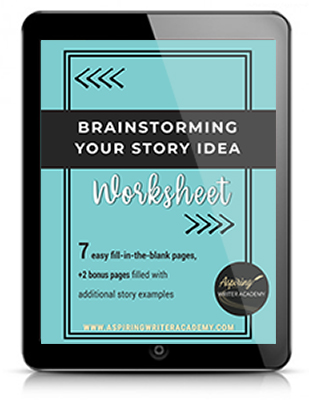
ENTER YOUR EMAIL BELOW
TO GET YOUR FREE
"Brainstorming Your Story Idea Worksheet"
7 easy fill-in-the-blank pages,
+ 2 bonus pages filled with additional story examples.
A valuable tool to develop story plots again and again.
Other Blog Posts You May Like
Creative Writing: 5 Ways to Strengthen a Weak Fictional Character
Fiction Writing: Create a Storyboard to Map Out Your Scenes
Fiction Writing: How Specific Details Can Bring Your Setting to Life
How to Spot Publishing Scams & How To Avoid Them
5 Common Mistakes New Writers Make
Fiction Writing: Story Analysis of the movie “Passengers”
Fiction Writing: How to Write Compelling Dialogue
Fiction Writing: 5 Key Differences Between a Novel and a Novella
Pros & Cons of Traditional vs. Self-Publishing Fiction
3 Ways to Avoid Writing ‘Episodic’ Scenes in Fiction
Scene & Sequel: The Secret to Plotting an Epic Novel
Scene & Sequel: The Secret to Plotting an Epic Novel (Part 2)

is a multi-published author, speaker, and writing coach. She writes sweet contemporary, inspirational, and historical romance and loves teaching aspiring writers how to write quality fiction. Read her inspiring story of how she published her first book and launched a successful writing career.
